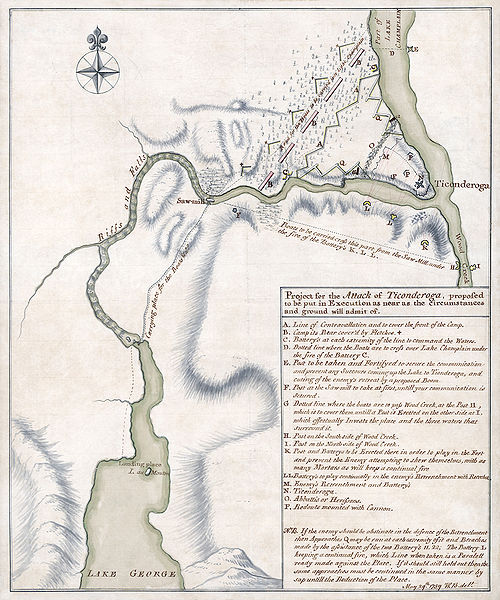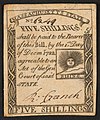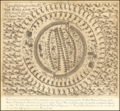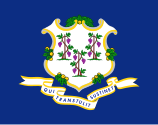Portal:New England
The New England Portal New England is a region comprising six states in the Northeastern United States: Connecticut, Maine, Massachusetts, New Hampshire, Rhode Island, and Vermont. It is bordered by the state of New York to the west and by the Canadian provinces of New Brunswick to the northeast and Quebec to the north. The Gulf of Maine and Atlantic Ocean are to the east and southeast, and Long Island Sound is to the southwest. Boston is New England's largest city and the capital of Massachusetts. Greater Boston is the largest metropolitan area, with nearly a third of New England's population; this area includes Worcester, Massachusetts, the second-largest city in New England, Manchester, New Hampshire, the largest city in New Hampshire, and Providence, Rhode Island, the capital of and largest city in Rhode Island. In 1620, the Pilgrims established Plymouth Colony, the second successful settlement in British America after the Jamestown Settlement in Virginia, founded in 1607. Ten years later, Puritans established Massachusetts Bay Colony north of Plymouth Colony. Over the next 126 years, people in the region fought in four French and Indian Wars until the English colonists and their Iroquois allies defeated the French and their Algonquian allies. (Full article...) Selected article
The Capture of Fort Ticonderoga occurred during the American Revolutionary War on May 10, 1775, when a small force of Green Mountain Boys led by Ethan Allen and Colonel Benedict Arnold overcame and looted a small British garrison. Cannons and other armaments from the fort were transported to Boston and used to fortify Dorchester Heights and break the stalemate at the Siege of Boston. After seizing Ticonderoga, a small detachment captured the nearby Fort Crown Point on May 11. On May 18, Arnold and 50 men boldly raided Fort Saint-Jean on the Richelieu River in southern Quebec, seizing military supplies, cannons, and the largest military vessel on Lake Champlain. Although the scope of this military action was relatively minor, it had significant strategic importance. It impeded communication between northern and southern units of the British Army, and gave the nascent Continental Army a staging ground for the invasion of Quebec later in 1775. It also involved two larger-than-life personalities in Allen and Arnold, each of whom sought to gain as much credit and honor as possible for these events. (Full article...)
Selected biography
Ellis Paul is an American singer-songwriter and folk musician. Born in Aroostook County, Maine, Paul is a key figure in what has become known as the Boston school of songwriting, a literate, provocative and urbanely romantic folk-pop style that helped ignite the folk revival of the 1990s. His pop music songs have appeared in movies and on television, bridging the gap between the modern folk sound and the populist traditions of Woody Guthrie and Pete Seeger.
Having grown up in a small town in Maine, Paul attended Boston College on a track scholarship where he majored in English. An athletic injury sustained during his junior year changed the course of his professional career. Paul picked up a guitar to pass the time while sidelined, and discovered that playing guitar and writing songs was the creative outlet he had been looking for. After graduating from college he began playing at open mic nights in the Boston area while working with inner-city school children. Paul's growing popularity at Boston coffeehouses, coupled with winning a Boston Acoustic Underground songwriter competition and national exposure on a Windham Hill Records compilation combined to give him the confidence to resign his day-job and pursue a career as a professional musician. (Full article...) Selected pictureGeneral images -The following are images from various New England-related articles on Wikipedia.
Did you know (auto-generated)
Related portalsMore did you know...
Selected State
Connecticut
Incorporated 1776 Co-ordinates 41.6°N 72.7°W Connecticut is the 3rd least extensive, the 29th most populous, and 4th most densely populated of the 50 United States. Called the Constitution State, Nutmeg State, and "The Land of Steady Habits", Connecticut was influential in the development of the federal government of the United States. The first major settlements were established in the 1630s by the English. Thomas Hooker led a band of followers overland from the Massachusetts Bay Colony and founded what would become the Connecticut Colony; other settlers from Massachusetts founded the Saybrook Colony and the New Haven Colony. In 1662, the three colonies were merged under a royal charter, making Connecticut a crown colony. This colony was one of the Thirteen Colonies that revolted against British rule in the American Revolution. (Full article...) WikiProjectsAssociated WikimediaThe following Wikimedia Foundation sister projects provide more on this subject:
Discover Wikipedia using portals |
- Portals with triaged subpages from July 2018
- All portals with triaged subpages
- All portals
- Portals with no named maintainer
- Random portal component with 26–30 available subpages
- Random portal component with 21–25 available subpages
- Random portal component with 16–20 available image subpages
- Random portal component with 6–10 available subpages
- United States portals
- New England
- Portals needing placement of incoming links















































































